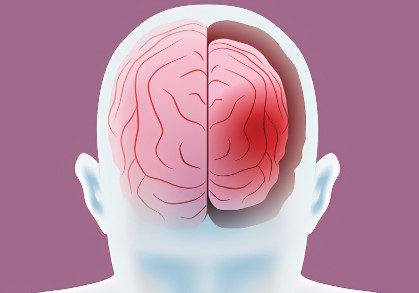Protecting your mind: How healthy lifestyle choices can help slow cognitive decline
10/17/2025 / By Evangelyn Rodriguez

- The brain is highly vulnerable to free radical damage due to its fat content. Poor diet, smoking, obesity and gum disease weaken the blood-brain barrier, allowing inflammatory cytokines to kill neurons and hinder neurogenesis.
- Hypertension, diabetes and obesity damage brain capillaries, shrink brain volume and triple dementia risk. Managing blood pressure (~115/75 mm/Hg) and blood sugar levels can delay cognitive deterioration.
- Loneliness, depression and chronic stress impair cognition. Social engagement, therapy and mindfulness practices help preserve brain function, while 150+ minutes of weekly aerobic exercise boosts neuron growth.
- The Mediterranean diet reduces Alzheimer’s risk. Antioxidants (berries, greens), omega-3s (fish oil), polyphenols (green tea) and supplements like magnesium-L-threonate and saffron combat neurodegeneration.
- Cognitive decline is largely preventable through diet, exercise, stress management and controlling chronic conditions. Early lifestyle choices—not genetics—determine long-term brain health.
Aging inevitably brings changes to the brain—some natural, others accelerated by poor habits. But while “senior moments” may seem harmless, unchecked lifestyle factors can lead to serious cognitive decline, including dementia. Research reveals that oxidative stress, inflammation, hormonal imbalances and chronic conditions like hypertension and diabetes all contribute to deteriorating brain function. The good news? Many of these risks are preventable through diet, exercise, sleep and stress management. Experts agree that proactive choices today can preserve mental sharpness tomorrow.
The hidden threats to brain health
Oxidative stress and chronic inflammation are among the most damaging internal enemies of the brain. The brain’s high fat content makes it particularly vulnerable to free radical damage, which destroys neurons and degrades cognitive function over time. Studies show that individuals with neurodegenerative diseases often have lower levels of natural antioxidants like glutathione, which normally neutralize this damage.
Compounding the problem, poor diet, smoking, obesity and gum disease weaken the blood-brain barrier, allowing inflammatory substances to infiltrate the brain and trigger harmful cytokines. These molecules not only kill neurons but also hinder the growth of new ones. Hormonal declines, such as drops in estrogen, testosterone and DHEA, further impair memory and mood. However, research suggests that supplementation, such as with DHEA, may help reverse some of these effects.
The role of chronic conditions
High blood pressure, diabetes and obesity significantly accelerate cognitive decline. Hypertension damages delicate brain capillaries, impairing mental acuity over decades. Cross-sectional and longitudinal studies show that hypertension in midlife alters cognitive function, affecting executive functions, memory, processing speed and global cognition. Managing hypertension can delay dementia onset, highlighting the importance of maintaining optimal blood pressure.
Similarly, uncontrolled blood sugar harms brain cells, shrinking brain volume and increasing dementia risk. Diabetic retinopathy, for instance, doubles the likelihood of mild cognitive impairment. Obesity, particularly abdominal fat, is also linked to reduced brain volume and function. A study that analyzed 19 long-term studies found that obesity, particularly between the ages of 35-65, can increase dementia risk by about 30 percent.
Social and emotional influences
Mental health also plays a crucial role in cognitive preservation. Loneliness, depression and chronic stress correlate strongly with cognitive impairment. In fact, even mild anxiety can reduce mental performance. Engaging in social activities, seeking therapy and managing stress through mindfulness practices or hobbies can help protect brain function.
Physical activity is equally vital. Exercise boosts neurotrophic factors, which promote neuron growth and survival. Just 150 minutes of moderate aerobic activity per week—such as walking or swimming—supports both cardiovascular and cognitive health.
According to BrightU.AI‘s Enoch engine, regular exercise, especially aerobic activities, boosts cognitive health by increasing oxygen flow to the brain and enhancing multitasking abilities, while mentally stimulating activities like puzzles preserve brain circuits and improve overall function.
Nutrition: The brain’s best defense
Dietary choices profoundly impact brain longevity. The Mediterranean diet—rich in olive oil, fish, colorful produce, nuts and seeds—has been shown to reduce Alzheimer’s risk. Antioxidant-packed foods like berries, leafy greens and nuts help combat oxidative stress, while moderate coffee consumption (about three cups daily) can slow cognitive decline due to coffee’s neuroprotective compounds.
Supplements also offer promise. Omega-3s (from fish or flaxseed oil) enhance brain function, while polyphenols in green tea, grapes and blueberries neutralize free radicals. Magnesium-L-threonate raises brain magnesium levels, potentially aiding amyloid-beta clearance. Even saffron has demonstrated benefits, matching the effectiveness of prescription drugs in slowing Alzheimer’s progression.
While aging brings inevitable changes to the brain, much of the decline attributed to “getting older” is actually preventable. By addressing inflammation, managing chronic conditions, staying socially engaged and prioritizing nutrition and exercise, individuals can significantly slow cognitive deterioration. The key lies not in waiting for decline to set in but in making proactive, brain-healthy choices today.
As research continues to uncover the links between lifestyle and mental longevity, one truth remains clear: Protecting the mind starts long before the first “senior moment” appears.
Learn about the six steps to boost brain health and reverse cognitive decline by watching the video below.
This video is from the What is Happening channel on Brighteon.com.
Sources include:
Submit a correction >>
Tagged Under:
aging secrets, alternative medicine, antioxidants, brain function, brain health, cognitive decline, cognitive function, dementia, health science, longevity, mental health, Mind, mind body science, natural cures, natural health, natural medicine, nutrition, prevention, supplements
This article may contain statements that reflect the opinion of the author
RECENT NEWS & ARTICLES
Dementia.News is a fact-based public education website published by Dementia News Features, LLC.
All content copyright © 2018 by Dementia News Features, LLC.
Contact Us with Tips or Corrections
All trademarks, registered trademarks and servicemarks mentioned on this site are the property of their respective owners.




















